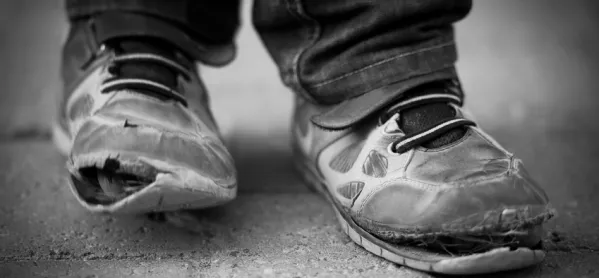Life was never meant to be fair and it most certainly isn’t. But working with disadvantaged children, I see the inequalities that exist in our country every day and the effects that these have on young people’s life chances.
As Theresa May’s social mobility tsar Alan Milburn quit last weekend, along with three of his fellow commissioners, the social mobility issue - already political dynamite - has been thrown into even starker relief. In his resignation letter, Milburn warned that the government “does not have the necessary bandwidth to ensure the rhetoric of healing social division is matched with reality”.
And earlier this year Justine Greening commented on the fact that 40 per cent of the gap between disadvantaged children and their peers is “already there by the age of 5” and that “even the highest-potential children from disadvantaged backgrounds are likely to be overtaken at almost every stage in their life by peers from higher-earning families”.
Social mobility pressures
Low social mobility and lack of educational opportunity continue to blight our society as the income gap between the richest and poorest widens. Unless action is taken, the economic and social cost could be catastrophic. Political parties on the left and the right need to collaborate to address the issue, hence the All-Party Parliamentary Group on Social Mobility.
It is little wonder that organisations like the Sutton Trust have been lobbying government to introduce means-tested fees and are suggesting that lowering university offers to disadvantaged students by two grades would lead to a 50 per cent increase in the number of free-school-meals-eligible pupils admitted to top universities.
Of course, social mobility is not just a question of money. A great deal of education takes place in the home and many of the pressures on “just about managing” families mean that parents simply don’t have enough time with their children. Then, there is the issue of private versus state education and the divisions this creates, as if Brexit wasn’t enough.
‘Educational apartheid’
Lack of social mobility an issue that impacts on all of us - rich, poor, left-wing, right-wing and everyone in between. We operate in a system of educational apartheid, yet education should be what bonds us and brings us together. As we seek best practice globally we need to share our findings, for the progress of all. Change needs to be from the bottom up and top down.
Poor children, through no fault of their own, are less prepared by their schools, families and communities to fulfil their potential. In these harsh economic times, the UK needs to nurture all the talent it can find. We can’t afford to waste it - to do so will lose our economy untold billions.
As for the social impact, what wisdom can you find that is superior to kindness? As the author Henry James put it: “Three things in human life are important: the first is to be kind, the second is to be kind, and the third is to be kind.”
James Glasse is a tutor and education consultant
Want to keep up with the latest education news and opinion? Follow Tes on Twitter and Instagram, and like Tes on Facebook




